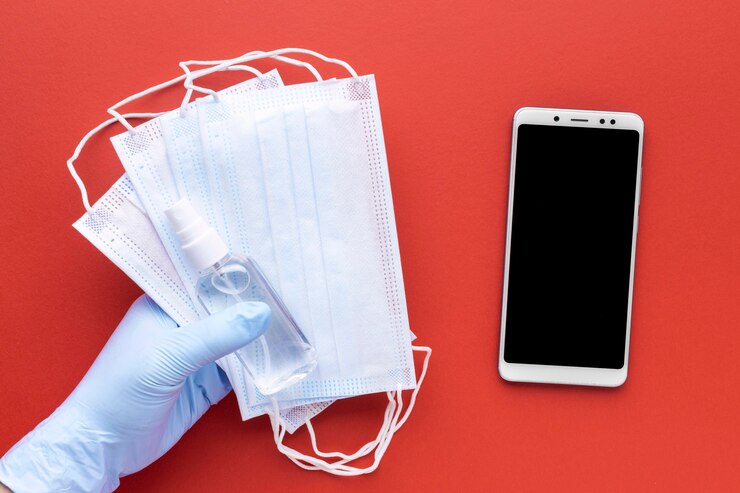Leave Letter for Fever: How to Write an Effective Request for Sick Leave

Introduction
Taking time off from work or school due to illness is a common necessity. Among various ailments, fever is one that often signals the body’s fight against infections and can significantly affect one’s ability to perform daily tasks. Crafting a leave letter for fever is not just about notifying your employer or teacher; it’s also about maintaining professionalism and clarity in your communication. This article will guide you through the process of writing an effective leave letter for fever, including essential components, sample letters, and tips for ensuring your message is received positively.
1. Understanding the Importance of a Leave Letter
A leave letter serves several important purposes:
- Documentation: It provides a formal record of your absence, which can be important for future reference, especially in workplaces or educational institutions.
- Professionalism: Submitting a well-written leave letter demonstrates respect for your employer or teacher, showing that you take your responsibilities seriously.
- Clarity: It ensures that your absence is communicated clearly, minimizing misunderstandings about your reasons for being away.
Whether you’re writing to a boss, supervisor, or teacher, your leave letter should communicate your situation effectively and professionally.
2. Components of a Leave Letter
When crafting a leave letter, there are several key components to include:
A. Subject Line (for emails)
In the case of email correspondence, a clear subject line helps your recipient understand the purpose of your message immediately. For example:
- Subject: Leave Application Due to Fever
B. Salutation
Begin your letter with an appropriate greeting. If you know the person well, a simple “Dear [Name]” is suitable. For more formal relationships, you may use “Dear Mr./Ms. [Last Name].”
C. Introduction
Start with a brief introduction stating your purpose for writing the letter. Be direct and clear.
D. Reason for Leave
Clearly explain that you are experiencing fever and are unable to perform your duties effectively. It’s not necessary to go into too much detail about your illness; a simple statement suffices.
E. Duration of Leave
Indicate the number of days you anticipate being absent. If you are unsure, you can mention that you will keep them updated on your condition.
F. Offer to Assist
If possible, offer to assist with urgent tasks or provide contact information in case someone needs to reach you during your absence.
G. Closing
Conclude your letter with a polite closing statement, thanking the recipient for their understanding. Use a formal sign-off, such as “Sincerely” or “Best regards,” followed by your name.
3. Sample Leave Letters for Fever
Here are two sample leave letters that you can customize to fit your situation:
Sample Letter 1: For Employees
Subject: Leave Application Due to Fever
Dear [Manager’s Name],
I am writing to formally request a leave of absence due to illness. I have been experiencing a high fever for the past couple of days, which has made it difficult for me to perform my job effectively.
I would like to request leave from [start date] to [end date], as I believe this time will allow me to rest and recover fully. If my condition improves, I will keep you updated and may return earlier if possible.
During my absence, I will ensure that all urgent matters are addressed. You can reach me at [your phone number] if necessary. I appreciate your understanding in this matter.
Thank you for your consideration.
Sincerely,
[Your Name]
[Your Position]
[Your Contact Information]
Sample Letter 2: For Students
Subject: Leave Application Due to Fever
Dear [Teacher’s Name],
I hope this message finds you well. I am writing to inform you that I am unable to attend school due to a fever I have been experiencing. My doctor has advised me to take some time off to rest and recover.
I kindly request leave from [start date] to [end date]. I will ensure that I catch up on any missed assignments and notes once I return.
Thank you for your understanding. Please let me know if there is any additional information you need from me.
Best regards,
[Your Name]
[Your Class/Grade]
[Your Contact Information]
4. Tips for Writing a Leave Letter
A. Be Honest
Always be truthful about your condition. If you are genuinely unwell, there is no need to exaggerate your symptoms. Honesty fosters trust between you and your employer or teacher.
B. Keep It Short and Simple
Your leave letter should be concise and to the point. Avoid unnecessary details about your illness; simply state that you are unwell and need time off.
C. Proofread
Before sending your leave letter, take a moment to proofread it for grammatical errors and clarity. A well-written letter reflects professionalism and attention to detail.
D. Follow Up
If you don’t receive a response in a timely manner, consider following up to ensure that your leave request has been received and acknowledged.
5. The Impact of Fever on Work and Studies
Fever is often a symptom of underlying health issues, and working or studying while unwell can hinder recovery. Here are some reasons why taking time off for a fever is crucial:
A. Health and Recovery
Rest is essential for recovery from any illness, including fever. By taking a break, you allow your body the time it needs to heal, preventing further complications.
B. Productivity
Working or studying while feeling unwell can lead to decreased productivity. Fatigue and discomfort make it challenging to focus, ultimately affecting your performance and the quality of your work.
C. Preventing Spread of Illness
If you have a contagious illness, attending work or school can put others at risk. By staying home, you contribute to the health and safety of your coworkers or classmates.

6. Frequently Asked Questions
A. How do I know if I should take a leave of absence?
If your fever is accompanied by severe symptoms or if it significantly impacts your ability to perform your duties, it’s advisable to take leave. Trust your body and seek medical advice if necessary.
B. Can I take leave for a short duration?
Yes, you can request leave for a short duration if that is sufficient for your recovery. Communicate this clearly in your letter.
C. What if my fever lasts longer than expected?
If your illness extends beyond the anticipated leave period, communicate with your employer or teacher promptly, updating them on your situation and requesting additional leave if necessary.
Conclusion
Writing a leave letter for fever is a straightforward process that can have a significant impact on your ability to recover while maintaining professionalism. By following the outlined structure, using the provided samples, and adhering to the tips mentioned, you can effectively communicate your need for time off. Remember, your health is paramount, and taking the necessary steps to recover ensures that you can return to your responsibilities feeling your best.
Taking care of yourself not only benefits you but also contributes positively to your workplace or school environment. Prioritize your well-being, and don’t hesitate to reach out for support when you need it.
